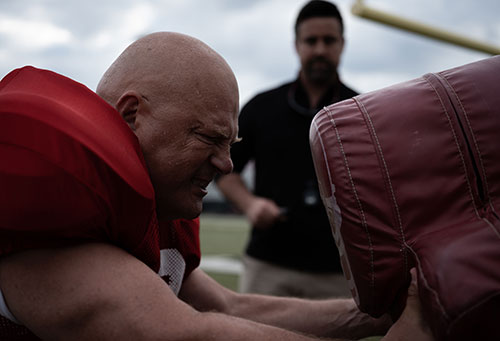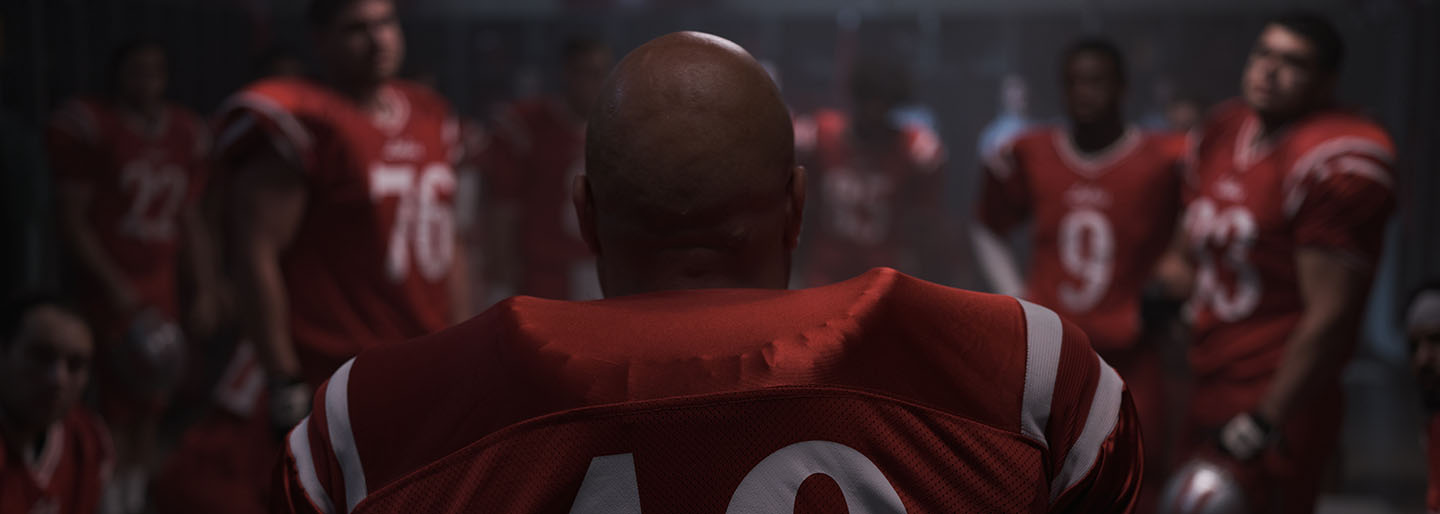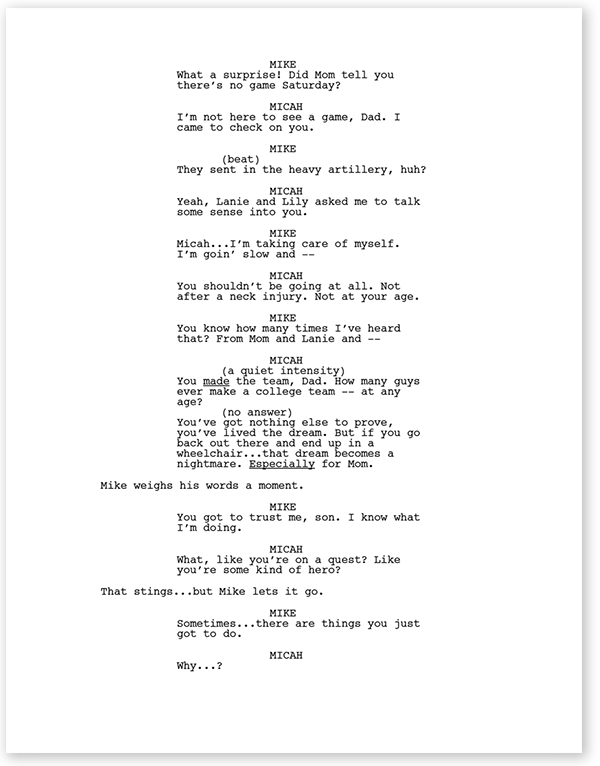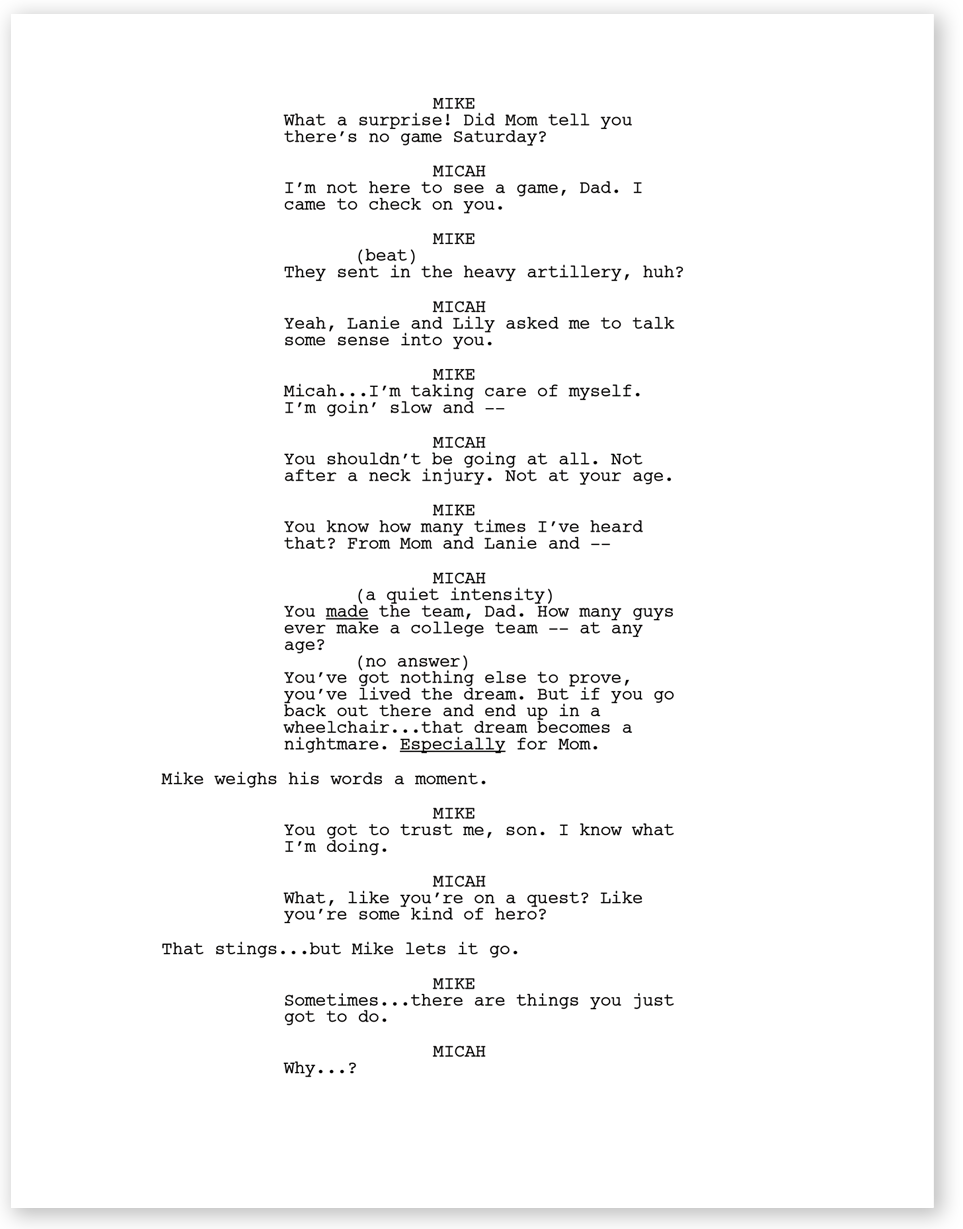Robert Eisele was convinced he was the wrong person to tell the story of The Senior.
Inspired by a real-life athlete at a small college in Texas, the story of Mike Flynt did not contain any overt themes of social justice toward which Eisele often gravitates. Nor did he relish the idea of writing the project with no guarantee that he would ever get paid.
 Robert Eisele
Robert Eisele“Mark Ciardi got the rights and he said, ‘Come on, write it on spec. I’ll get this movie made for you,’” recalled Eisele, a WGAW member since 1980. “I said, ‘Yeah, I don’t write spec scripts. I’ve got a family to support.’ I didn’t really want to write a sports story. But on the other hand, I know a great story when I hear one.”
The story he heard was part underdog tale, and part sports flick with an unlikely hero at its center. In 2007, four decades after getting kicked out of school and off the football team at Sul Ross State in Alpine Texas for fighting, Mike Flynt renewed his eligibility and returned to Sul Ross to play his senior year, thereby becoming the oldest college linebacker in NCAA history.
“No longer being a youth myself, how this man could play linebacker at 59 really intrigued me,” said Eisele, who is also credited as an executive producer on the film. “I certainly couldn’t have done it.”
The deeper Eisele delved into Flynt’s life after meeting him, the more committed he became, and the more he noticed personal parallels beyond the fact that the two men are the same age. In 1966, while both men were playing college football—Flynt for Sul Ross State, Eisele for Pasadena City College—both of their teams were defeated by Henderson County Junior College.

Can you still get up there and create something of value and depth, and humor? If you can, you should have that opportunity.
- Robert Eisele
“He was really tough beyond tough, yet also a kind and gentle man,” Eisele said of Flynt. “Mike and I are not of the same political point of view. I’m not a religious guy, and he is, and yet we admire each other. I don’t know a lot of people that are as honest and sincere as this guy is. We skirt around the things we disagree on, but we’re close. He’s a good guy.”
His friendship with Flynt, indeed the whole circumstance of The Senior, is satisfying for Eisele, whose career dates back to the early 1980s, spanning TV and film and earning him three Writers Guild Award nominations. His credits include writing and being a supervising producer on the ‘80s series The Equalizer, and the teleplay for the films Last Light and Lily in Winter, as well as the 2009 film Hurricane Season. Eisele and Jeffrey Poro were awarded the 2008 Paul Selvin Award for The Great Debaters.
 Michael Chiklis in The Senior. Photo by Angel Studios.
Michael Chiklis in The Senior. Photo by Angel Studios.Still a working writer in his 70s, Eisele has now told the story of a nearly 60-year-old college senior playing with men who were younger than his own children. If age discrimination is part of Mike Flynt’s story, it’s not a dominant theme. In The Senior, Flynt quickly wins over his much-younger teammates, several of whom come to view him as an inspirational figure. Flynt’s ability to keep up with his teammates during practice helps earn their respect.
Even amidst the occasional grandpa taunts, Flynt would have been too tough to “fly the ageism flag.” Eisele, who walked the 2023 WGA and SAG-AFTRA picket lines with younger writers, feels much the same way. Having taught at a junior college for 10 years before establishing himself as a writer, Eisele knows how difficult it is to find success in this business regardless of a person’s age.
“It’s never been easy,” he said. “When I was a young man, I didn’t really want the old guys not to work, but I wanted them to get out of the way so the new generation—my generation—could come up. I’m sensitive to that among young people because I think that the millennials and the Generation Zs who are coming up really got kicked in the teeth by the changing conglomerate consciousness in the industry. Opportunities are being diminished and salaries really are not going up.”
“I do understand why the demographic is shaped toward youth, and why a writer who is a little long in the tooth should focus on areas that they have knowledge of and areas where they can really be completely authentic,” he continued. “Can you still get up there and create something of value and depth, and humor? If you can, you should have that opportunity.”
A father of two who recently celebrated his 50th wedding anniversary, Eisele is a proud Guild member who has participated in multiple strikes. His union, he maintains, is the reason he was able to buy a home based solely on his writing income and to earn a sustainable living.
As a young man, Eisele studied with former WGAW officer Ted Apstein. Eisele recalled Apstein revering the Guild and conveying his belief to his students that earning one’s entry into the WGAW meant becoming a “real writer.”
“We all wanted to get our WGA card; we craved it,” Eisele said. “When I got my WGA card, I felt like I got a badge. I’m the real deal. People in my generation saw the good in the union movement and felt if we really want to make America great, the union movement should return in force. All the people I came up with—every mother’s son and daughter of them—felt the same way.”







